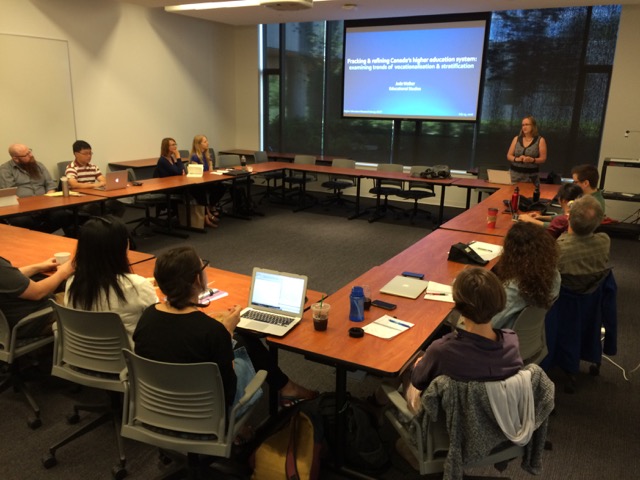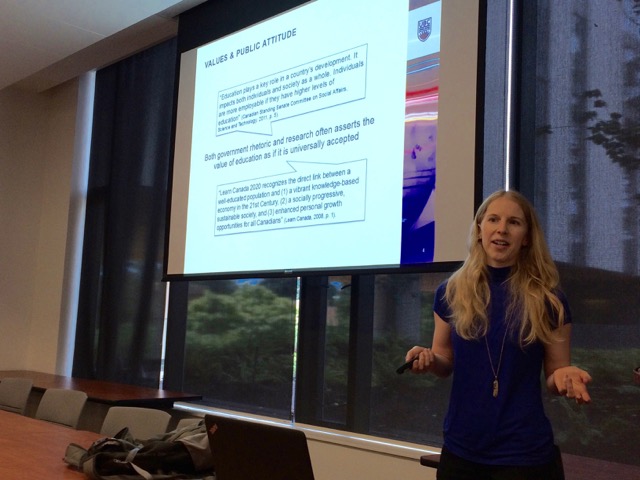Please join us for the next HERG seminar:
Friday, October 21, 2016, 12:00-2:00, Multipurpose Room (room 2012), Ponderosa Commons Oak House
Fei Wang, Assistant Professor, EDST
The Lived Experiences of Canadian-Born and Foreign-Born Chinese Canadian Post-Secondary Students in Northern Ontario
This phenomenological study provided an in-depth description of the internal meaning of the lived experiences of Canadian-born and foreign-born Chinese students in Canada and uncovered the differences in their social experiences. The study used semi-structured interviews to allow the participants to express their views on their lives in Northern Ontario, Canada. Four themes emerged: (a) perceptions of ethnic identity; (b) cultural integration; (c) perceptions of academic performance and (d) the effect of Canadian education on career options. The study revealed that Canadian-born Chinese students differed from their foreign-born counterparts in their viewpoints on ethnic identity; their perceptions concerning acculturation; and academic performance. They shared similarities in their views about Canadian and Chinese educational systems, teaching styles, and their career expectations.
Related to this recent article:
Wang, F. (2016). The Lived Experiences of Canadian-Born and Foreign-Born Chinese Canadian Post-Secondary Students in Northern Ontario. Journal of International Students, 6(2), 451.
François Lachapelle, PhD student, Sociology and Patrick John Burnett, PhD Candidate, Sociology
The Rise and Stall of the Canadianization Movement: Canadian Professoriate, Envy-League, and the Social Sciences, Evidences from 1978-2015
The Canadianization Movement is one of the constitute moments in the relatively recent history of Canadian social sciences that emerged in the late 1960s under the leadership of two Carleton University English professors, James Steele and Robin Matthews. This social movement later gained momentum in the mid-1970s when the young Canadian Sociology and Anthropology Association adopted an aggressive Canadianizing policy that culminated in 1982 when the federal government adopted the Canadian First Policy. Afterwards, as the domestic narrative goes, the Canadianization Movement, which proposed to limit the access of non-Canadians to academic jobs, may possibly have overturned the post-war Americanization of Canada’s social scientific field. Using the largest database on Canadian professoriates to date (5,000 cases), we are undertaking a series of longitudinal studies of U15’s social sciences professors’ educational trajectory between 1978 and 2015 to document ‘the rise and stall’ of the Canadianization Movement at the institutional level.


